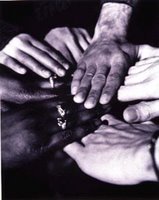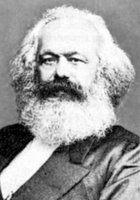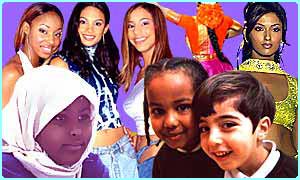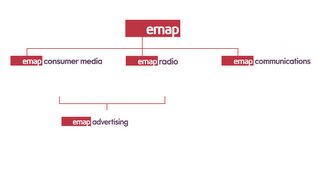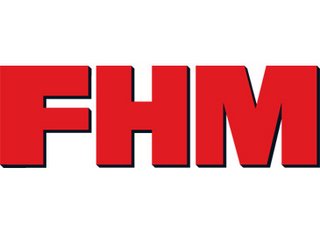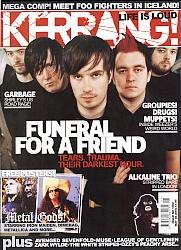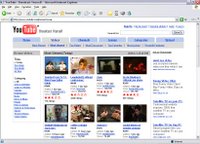Using the comparison of these two texts as your starting point, explore the media issues and debates which they raise.
In you answer you will need to address:
- Key concepts
- Contextual Factors
- Media theory
Rap music of today has changed immensely from what it consisted of more then 30 years ago, when it first started. The 1970’s saw the breakthrough of rap music, and back then it would be about racism, segregation and the representation of certain genders. In 1972, Gil Scott-Heron released his “The revolution will not be televised” which is about the lack of positive representation of black people in the media and the black civil rights. Further along, in 1998, Sarah Jones (featuring DJ Vadim) released her version of this, “Your Revolution”, but more concentrating on the feminist revolution and fighting for women’s rights, and how women are represented or representing themselves in the media. The rap songs of the days gone by had deeper meanings to their lyrics, unlike today’s materialistic rap songs where you get rappers rapping about “money, hoes, cars and clothes” (T.I - 24’s), the insignificant things in life, without deeper meaning.
Heron’s “Your revolution will not be televised” focuses on the treatment of black people, due to slavery which led to a divided union in America. In the 20th century, black people had started to feel they were not treated equally and wanted their opinions to be heard. One way of reaching out to people was through the media, and rapping about this would have got a lot of attention. Heron clearly states in his rap that white people overpower the black people in many ways, where black people are only seen negatively. He talks about many successful white people such as “Natalie Woods” and “John Mitchell”. This rap has an underlying angry tone which is covered by the soft sounds of instruments in the background.
Where on the one hand, Gil Scott-Heron’s “The revolution will not be televised” is about the under representation of black people in the media, on the other hand, Sarah Jones says in her rap that although there is more representation of black people, the black media is negative as these black people are not representing themselves in an appropriate manner. Gil Scott-Heron rap argues the fact that in the 1970’s there was less media which was dominantly owned by white people and therefore less represented. In the rap he says that “there will be no pictures of pigs shooting down brothers in the instant replay”, referring to the white people as “pigs” and the black people as “brothers” suggesting that they are the victims of brutality. This is repeated in the song consecutively, which emphasises the point even further. This also suggests that after the revolution there will be a change in how black people are treated, challenging the hegemony, as suggested by Karl Marx.
Sarah Jones “Your Revolution” is a post-modern pastiche, which is also a protest record which has an alternative voice challenging the ideologies of the contemporary society. Jones rap is of female empowerment and suggests that there need to be more explicit women’s rights. Women have had difficulty in history to prove that they are equal to men, and this bought about many feminist groups and individuals who would show that women needed to be treated more fairly. She suggests that the media is a misogynistic game where females have to subjugate themselves in order for them to be noticed and says that she will not fall under the trap. She suggests through the repetition of “your revolution will not happen between these thighs” that you do not have to use your sexuality in order to get somewhere. Ironically, Jones's "Your Revolution" makes a powerful statement against indecency, in particular, the sexual exploitation of women in popular music. The song, originally a poem, pulls no punches in making its feminist critique, taking direct aim at famous hip-hop songs by artists including LL Cool J and Notorious B.I.G. by quoting and then denouncing some of their macho lyrics.
As Jones talks of the female revolution and the negative representations of women in the media, Heron talks of the negative representations of black people. As Stuart Hall put it there are three ways in which the black people have been represented in the media in history. He suggests that black people are either represented as the trouble maker, as the entertainer or as being dependent. He also suggests that the origins of racist ideology lie in colonialism which represented the blacks as “primitive” and “savage” and whites as “civilized” and “developed”. Heron implies that the media portray only negative images of black people in the media, and as what the Frankfurt School were concerned with, was how the media manipulates and indoctrinates the mass audience into believing what they saw on T.V. and Heron wanted to prove that not everything you see is truth. This links to the hypodermic needle model of the effects theory which suggest that media injects the passive audiences with ideologies. Heron suggests that there will be a revolution but the white people do not consider the black people to be serious enough to televise this which is implied by the title “the revolution will not be televised” which is constantly repeated in this rap. Heron suggests that these representations of black people need to change and that they will with the use of “there will”, which suggests that there will be a difference after the revolution he is talking about.
Sarah Jones suggests that the revolution of black people is not about materialistic “Versaces you buys/Or the Lexus you drives” but about the females having their own voices and being individuals, not whores in the music videos. She also suggests that these men do it to make themselves look good as they are self obsessed and have a sense of machismo. This suggests that we live in a patriarchal society where the females are not as powerful as the men, who seem to have the dominating power in our society.
Heron political protest about the representation of black people in the media is powerful and it includes the anxieties the adverts of the contemporary society of the time promoted. As Jones talks about the materialistic things not being included in the revolution, Heron talks about the similar things saying “the revolution will not go better with coke, the revolution will not fight the germs that may cause bad breath” which is parodying slogans of advertising. By parodying the advertising slogans, Heron points out that people are interested in the much smaller things in lifer, whereas if they looked at the bigger picture they would realize there are much serious things that should be addressed.
Both song writers suggest by the end of their rap songs that there will be a revolution and it will be “real” and it will be “live” which suggests that these artists think that there is hope and reason for a change. This shows that they are optimistic and have faith in the fact that what they are doing will make a difference.

